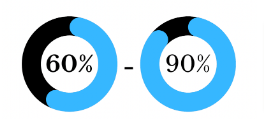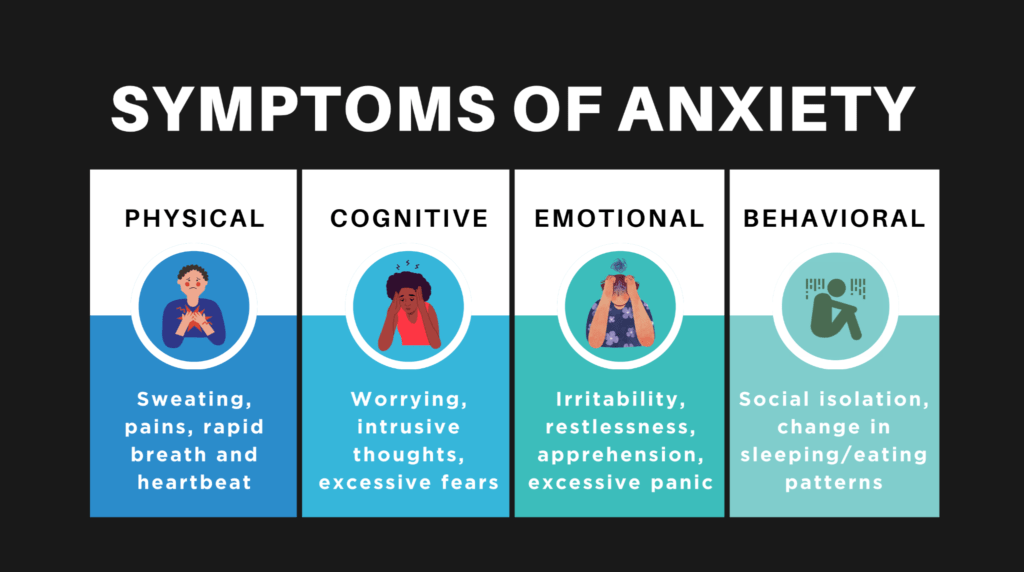Best Anxiety Treatment in Gurugram with Deep TMS Therapy: A Comprehensive Guide by Positive Mind Care and Research Centre
Anxiety disorders can be challenging to manage, but with the right treatment, significant improvement is...

Positive Mind Care and Research Centre is a leading facility mental health care facility of Delhi -NCR, dedicated to helping individuals to overcome tobacco addiction and reclaim their joyful lives through a unique breakthrough technology called Deep TMS, which can reach significant depth and breadth of the brain and produce broad stimulation and functional modulation of targeted brain areas to cure the problem of addiction.
Deep TMS treatment features unique, patented coils that are fitted into a helmet, which is secured snugly to the patient’s head during the treatment. We are using BrainsWay’s therapy, which has been utilized in over 60 clinical trials worldwide. The company’s device has been FDA approved for the treatment of Major Depressive Disorder (MDD) since 2013, FDA cleared (De-Novo) for the treatment of Obsessive Compulsive Disorder (OCD) since 2018, FDA cleared as an aid for short-term Smoking Cessation since 2020, and has now received an expanded indication for Anxious Depression.
Anxious Depression refers to anxiety symptoms in patients suffering from Major Depressive Disorder (MDD). This is distinct from patients that experience depression that is triggered by a primary diagnosis of an anxiety disorder, such as generalized anxiety disorder or panic disorder.
Both anxiety and depression have been associated with experiencing distress when facing the unknown. For depression, the trigger is related to a sense of sadness, and anxiety grows from thoughts of a future “threat” whose likelihood remains unclear. While depression is defined by a lack of energy, anxiety is perceived as more of a system overload and is tied to excessive concern over the possibility of experiencing harm.
Anxious depression, also known as mixed anxiety-depressive disorder or comorbid anxiety and depression, is a mental health condition characterized by the simultaneous presence of symptoms of both major depressive disorder (MDD) and generalized anxiety disorder (GAD). It represents a complex combination of depressive and anxiety symptoms, and individuals with this condition experience significant distress and impairment in daily functioning.
Between 60 – 90% of patients with depression have moderate to severe anxiety. Anxious depression is linked to greater severity of depression symptoms, higher risk of suicide, reduced response rates to treatment, and higher risk of cardiovascular disease and diabetes.

It’s essential to remember that the symptoms of anxious depression can vary in severity and presentation among individuals. A comprehensive evaluation by a qualified mental health professional is crucial to properly diagnose and differentiate anxious depression from other mood and anxiety disorders. With appropriate treatment, including psychotherapy, medication, and lifestyle changes, individuals with anxious depression can find relief and improve their overall well-being.

Provides a convenient and flexible approach to treatment, allowing patients to receive care while maintaining their daily routines.
A non-invasive procedure that targets specific areas of the brain associated with depression. This innovative treatment option has shown promising results in reducing symptoms of MDD and is FDA approved.
A supportive and empathetic environment to express thoughts, emotions, and experiences, develop coping strategies, and gain insights to improve overall well-being.
Our center combines expert medical care with a compassionate and supportive environment, empowering individuals to reclaim their lives.
Cultivate awareness, reduce stress, and enhance overall well-being through meditation, yoga, and other practices to keep you grounded.
Our center combines expert medical care with a compassionate and supportive environment, empowering individuals to reclaim their lives.
Deep Transcranial Magnetic Stimulation (TMS) is a non-invasive medical procedure used in the treatment of Major Depressive Disorder (MDD) that does not respond well to conventional treatments like antidepressant medications and psychotherapy. Deep TMS works by delivering magnetic pulses to specific areas of the brain associated with depression, modulating neural activity in these regions. Here’s how it helps in treating MDD:
Non-invasive Procedure: Deep TMS is a non-invasive technique, meaning it does not require surgery or anesthesia. It is considered safer than invasive procedures like electroconvulsive therapy (ECT).
Targeted Brain Stimulation: The treatment targets specific areas in the brain known to be involved in depression, such as the prefrontal cortex. By stimulating these regions, it aims to normalize the abnormal brain activity associated with MDD.
Neuroplasticity: Deep TMS may promote neuroplasticity, which refers to the brain’s ability to reorganize and form new neural connections. By stimulating neural pathways, it may help to establish healthier patterns of brain activity, potentially alleviating depressive symptoms.
Treatment Resistance: Deep TMS is particularly useful for individuals who have not responded well to other treatments for depression. It offers an alternative option for those who may have treatment-resistant depression.
Minimal Side Effects: Deep TMS is generally well-tolerated, and the side effects are typically mild and temporary, such as headaches or scalp discomfort.
We at Positive Mind Care and Research Centre, a new generation mental health clinic, are dedicated to providing the highest quality care and research in the field of mental health. We take a positive and holistic approach to mental health, focusing on the individual as a whole and their unique needs and circumstances. We are committed to using evidence-based scientific treatment methods, conducting research, and providing education and outreach to the community. Remember that you are not alone, and we are here to help you on your journey towards betterment !
Learn more about how Positive Mind Care innovative TMS treatment technology can be effective in treating psychiatric disorders.
Anxiety disorders can be challenging to manage, but with the right treatment, significant improvement is...
Obsessive-Compulsive Disorder (OCD) is a challenging mental health condition characterized by intrusive thoughts (obsessions) and...
Anxiety is a common mental health condition that affects millions of people worldwide.
Learn more about how DEEP TMS treatment technology can be effective in treating neurological disorders.
Disclaimer:- The information provided on this website is for informational & educational purposes only and should not replace professional medical advice. Please consult with a qualified healthcare provider for personalized treatment recommendations.
Copyright © 2023. Positive Mind Care. All Rights Reserved